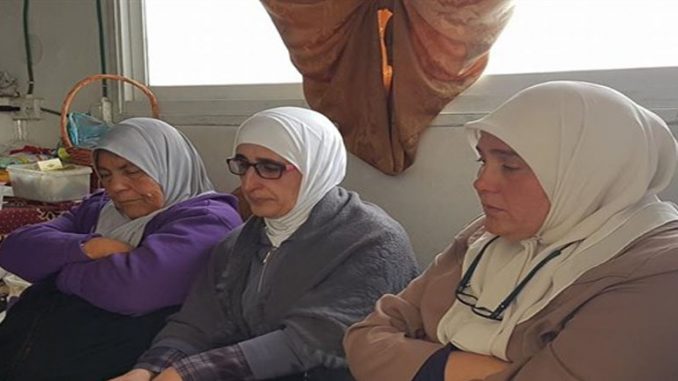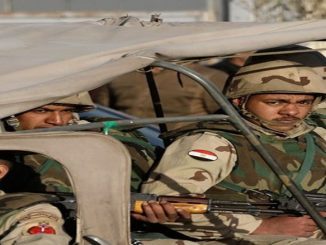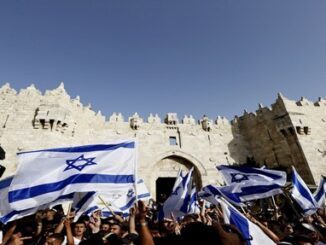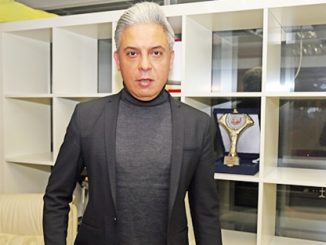
After an Israeli policeman shot and killed Ibrahim Matar in occupied East Jerusalem’s Old City early Monday morning for allegedly committing a stabbing attack against two other officers, members of Matar’s family have demanded that Israeli authorities release security camera footage of the incident, insisting that the 25-year-old blacksmith was “executed in cold blood.”
While Israeli police claimed that “a terrorist” stabbed and injured two officers with knife, locals said they witnessed a dispute between Matar and police while he was being detained inside a police post near the entrance to Al-Aqsa Mosque, insisting that the altercation was “under control” and that Matar could have been detained without the use of lethal force.
Witnesses made no mention of a knife being in Matar’s possession and said they saw the young man “carrying a stick,” while Israeli police released a photo purporting to show the knife used in the alleged attack.
Following the killing, Israeli forces were heavily deployed in and around Lion’s Gate and prevented many Palestinians from reaching Al-Aqsa Mosque to pray, with witnesses saying the lockdown lasted from 4:30 until 6 a.m.
Israeli forces also raided Matar’s home in the occupied East Jerusalem neighborhood of Jabal al-Mukabbir and detained his brother, parents, and his uncle.
Furthermore, Israeli police said they prevented a residence in the neighborhood from installing a mourning tent commemorating Matar.
Members of Matar’s family told Ma’an later on Monday that the young man was heading to Al-Aqsa Mosque to attend dawn prayers when he was detained by police, rejecting the police narrative that he was there to commit an attack.
His uncle Ayoub Matar said in an interview that Ibrahim attended dawn prayers at Al-Aqsa Mosque every day, and would return home afterwards to have breakfast with his grandmother in Jabal al-Mukabbir.
Ayoub said that he only learned of the killing after Israeli forces raided Jabal al-Mukabbir and broke into Ibrahim’s home.
He said the raid was carried out in a “horrifying manner,” with Israeli forces preventing locals from going near the house.
After searching and ransacking the home, Israeli police detained both of Ibrahim’s parents, his brother Rida, and his uncle Mahmoud.
When the raid was finished, Israeli forces locked the house and took the keys with them, Ayoub said.
He added that while the family had not witnessed the circumstances of the killing, they were sure that Ibrahim Matar had been “executed in cold blood,” and demanded that Israeli authorities release security camera footage documenting the incident.
Ayoub described his nephew as “a calm man who was not affiliated with any political faction. He was committed to his work as blacksmith with his father.”
Suleiman Shqeirat, the head of a committee established to defend Palestinian land and homes in Jabal al-Mukabbir, said the police’s detention and subsequent shooting of Matar amounted to a “field execution” which was being falsely presented by authorities as a terrorist attack.
Shqeirat also noted that the Israeli police published video that only showed blood inside of the police post taken during the shooting’s aftermath, but that recordings documenting the incident itself were not published.
Since a wave of unrest began in October 2015, which has left some 259 Palestinians and 40 Israelis killed, rights groups have disputed Israel’s version of events in a number of cases, denouncing what they have termed as a “shoot-to-kill” policy against Palestinians who did not constitute a threat at the time of their death, or who could have been subdued in a non-lethal manner — amid a backdrop of impunity for Israeli forces who have committed the killings.
Israel’s response to attacks have meanwhile be denounced as “collective punishment” and illegal under international law.
Jabal al-Mukabbir has already been subjected to a “policy of reprisal” in recent months through the closure of main roads resulting in the disruption of the movement of people and public transport, after resident of the neighborhood Fadi al-Qunbar was shot dead when driving a truck into a group of Israeli soldiers, killing four.
In the wake of the attack, the Israeli Minister of Interior decided to revoke the residencies of 13 members slain attacker’s family — including al-Qunbar’s mother — and demolition notices were delivered to some 81 houses in Jabal al-Mukabbir under the pretext that they were built without permits, while the al-Qunbar home was ordered to be punitively demolished.



